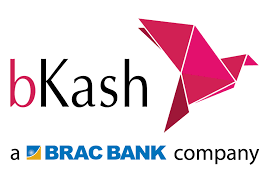Certified Ethical Hacker (CEH) v13
Course Outline
Duration: 40 hours
About the Program
CEH v13 is the ultimate program for anyone driven to master ethical hacking and fortify their organization’s security. Covering 20 essential security domains, this course goes beyond foundational knowledge, diving deep into the tools, techniques, and strategies hackers use to exploit systems—and how to counter them.
With a focus on the latest commercial-grade hacking tools and methodologies, CEH v13 equips you to understand and think like a hacker, empowering you to strengthen defenses with the insight only a professional attacker would know. From vulnerability assessments to penetration testing, this course prepares you to face real-world challenges head-on, with skills that make a meaningful difference in any security posture.
Who is it for?
The CEH v13 course is designed for professionals who are serious about building advanced skills in cybersecurity. It’s ideal for:
- Security Officers and Auditors: Gain insights into potential security gaps and implement stronger defense strategies.
- Network and Systems Administrators: Deepen your understanding of security best practices and learn to identify and respond to vulnerabilities within networks and systems.
- IT and Information Security Professionals: Enhance your skills in ethical hacking and prepare to face real-world cyber threats with confidence.
Aspiring Penetration Testers and Ethical Hackers: Build a solid foundation for a career in ethical hacking with hands-on experience using industry-standard tools and techniques.
Anyone Pursuing Cybersecurity Excellence: If you’re passionate about securing information and staying ahead of modern threats, this course offers a structured path to gain critical, high-demand skills.
Whats New in CEH v13?
AI-Powered Modules: This version integrates artificial intelligence extensively, covering AI-driven ethical hacking concepts, such as:
AI-based vulnerability assessment
AI-enhanced penetration testing tools
Cloud Security: Enhanced content on securing cloud environments:
Focus on AWS, Azure, and Google Cloud
Labs on cloud reconnaissance and enumeration
Container Security: Important for modern development practices:
New content on container security
Docker vulnerability assessments
Advanced Attack Techniques: It’s crucial to stay ahead of evolving threats:
Over 550 attack techniques
New scenarios like VoIP device hacking and CAN protocol attacks
Updated Tools: The program keeps you up-to-date:
Latest network scanning and enumeration tools
AI-enhanced penetration testing tools
AI-Powered Modules: This version integrates artificial intelligence extensively, covering AI-driven ethical hacking concepts, such as:
AI-based vulnerability assessment
AI-enhanced penetration testing tools
Cloud Security: Enhanced content on securing cloud environments:
Focus on AWS, Azure, and Google Cloud
Labs on cloud reconnaissance and enumeration
Container Security: Important for modern development practices:
New content on container security
Docker vulnerability assessments
Advanced Attack Techniques: It’s crucial to stay ahead of evolving threats:
Over 550 attack techniques
New scenarios like VoIP device hacking and CAN protocol attacks
Updated Tools: The program keeps you up-to-date:
Latest network scanning and enumeration tools
AI-enhanced penetration testing tools
Course Content:
-
- Module 01: Introduction to Ethical Hacking
- Module 02: Foot Printing and Reconnaissance
- Module 03: Scanning Networks
- Module 04: Enumeration
- Module 05: Vulnerability Analysis
- Module 06: System Hacking
- Module 07: Malware Threats
- Module 08: Sniffing
- Module 09: Social Engineering
- Module 10: Denial-of-Service
- Module 11: Session Hijacking
- Module 12: Evading IDS, Firewalls, and Honeypots
- Module 13: Hacking Web Servers
- Module 14: Hacking Web Applications
- Module 15: SQL Injection
- Module 16: Hacking Wireless Networks
- Module 17: Hacking Mobile Platforms
- Module 18: IoT and OT Hacking
- Module 19: Cloud Computing
- Module 20: Cryptography
Exam Details
- Exam Code: 312-50
- Duration: 4 hours
- Format: Multiple-choice questions
- Number of Questions: 125
- Passing Score: The passing score varies between 60% to 85%, depending on the exam form
Certified Ethical Hacker (CEH) v13
Core ModulesModule 01: Introduction to Ethical Hacking
Module 02: Footprinting and Reconnaissance
Module 03: Scanning Networks
Module 04: Enumeration
Module 05: Vulnerability Analysis
Module 06: System Hacking
Module 07: Malware Threats
Module 08: Sniffing
Module 09: Social Engineering
Module 10: Denial-of-Service
Module 11: Session Hijacking
Module 12: Evading IDS, Firewalls, and Honeypots
Module 13: Hacking Web Servers
Module 14: Hacking Web Applications
Module 15: SQL Injection
Module 16: Hacking Wireless Networks
Module 17: Hacking Mobile Platforms
Module 18: IoT Hacking
Module 19: Cloud Computing
Module 20: Cryptography
|
Certified Ethical Hacker
Course Name | Duration | Class Days | Time Slot | Start Date |
| Certified Ethical Hacker v13 | 40 Hours | Only Friday | 10.00 am to 5.00 pm | 22 November 2024 |

